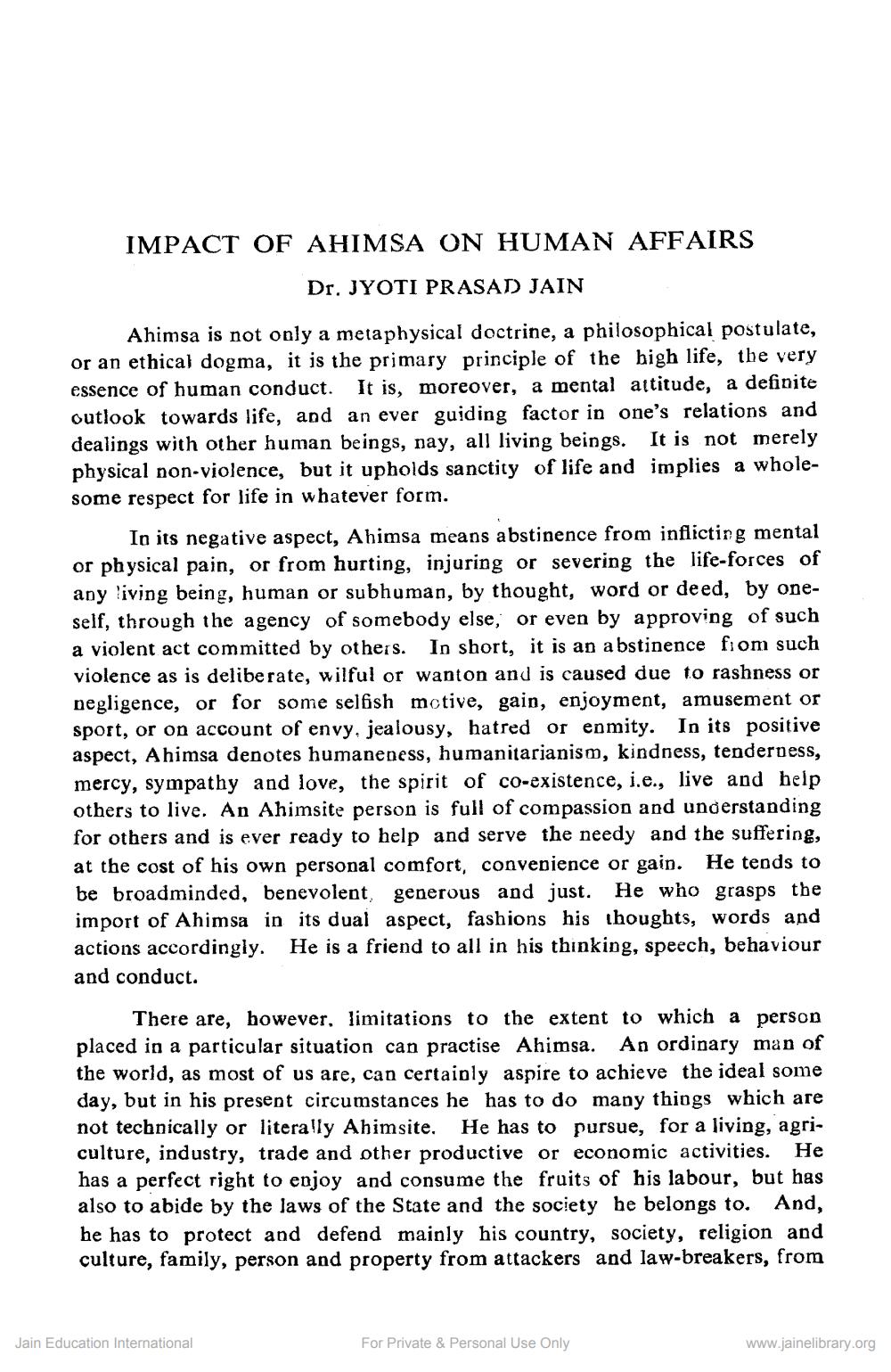________________
IMPACT OF AHIMSA ON HUMAN AFFAIRS
Dr. JYOTI PRASAD JAIN
Ahimsa is not only a metaphysical doctrine, a philosophical postulate, or an ethical dogma, it is the primary principle of the high life, the very essence of human conduct. It is, moreover, a mental attitude, a definite outlook towards life, and an ever guiding factor in one's relations and dealings with other human beings, nay, all living beings. It is not merely physical non-violence, but it upholds sanctity of life and implies a wholesome respect for life in whatever form.
In its negative aspect, Ahimsa means abstinence from inflicting mental or physical pain, or from hurting, injuring or severing the life-forces of any living being, human or subhuman, by thought, word or deed, by oneself, through the agency of somebody else, or even by approving of such a violent act committed by others. In short, it is an abstinence fiom such violence as is deliberate, wilful or wanton and is caused due to rashness or negligence, or for some selfish motive, gain, enjoyment, amusement or sport, or on account of envy, jealousy, hatred or enmity. In its positive aspect, Ahimsa denotes humaneness, humanitarianism, kindness, tenderness, mercy, sympathy and love, the spirit of co-existence, i.e., live and help others to live. An Ahimsite person is full of compassion and understanding for others and is ever ready to help and serve the needy and the suffering, at the cost of his own personal comfort, convenience or gain. He tends to be broadminded, benevolent, generous and just. He who grasps the import of Ahimsa in its dual aspect, fashions his thoughts, words and actions accordingly. He is a friend to all in his thinking, speech, behaviour and conduct.
There are, however, limitations to the extent to which a person placed in a particular situation can practise Ahimsa. An ordinary man of the world, as most of us are, can certainly aspire to achieve the ideal some day, but in his present circumstances he has to do many things which are not technically or literally Ahimsite. He has to pursue, for a living, agriculture, industry, trade and other productive or economic activities. He has a perfect right to enjoy and consume the fruits of his labour, but has also to abide by the laws of the State and the society he belongs to. And, he has to protect and defend mainly his country, society, religion and culture, family, person and property from attackers and law-breakers, from
Jain Education International
For Private & Personal Use Only
www.jainelibrary.org




